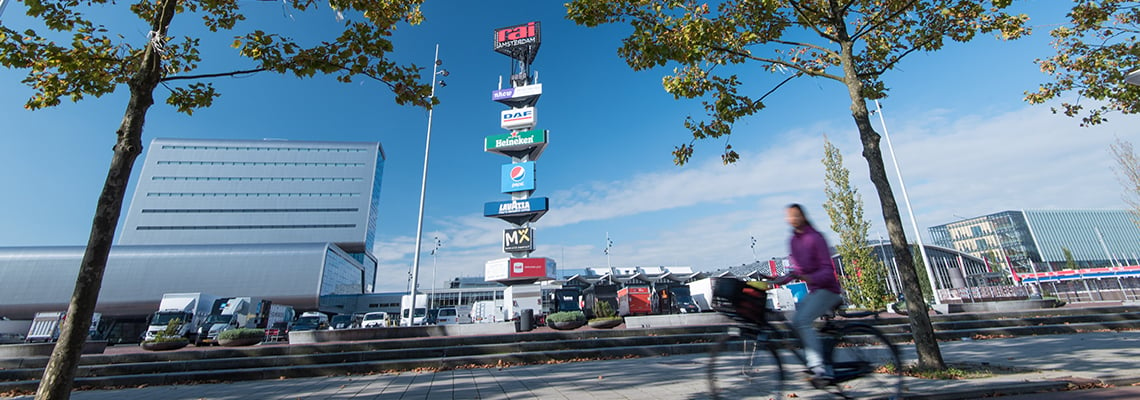We are ready to reopen following the social distancing guidelines
RAI Amsterdam is able to reopen its doors in the short term while closely following all guidelines regarding social distancing. The RAI wishes to organise trial events during the summer to test the various ways that visitors and exhibitors can be safely brought together. All the required measures will be taken. A detailed roadmap will help the convention centre get back to business safely.
The RAI has the key advantage of being able to use its huge complex of over 110,000 m2, allowing people to easily move around at a safe distance from each other. “If garden centres, department stores, home furnishing outlets like IKEA and DIY centres are able to open, so too can we,” says CEO Paul Riemens.
Prepared for business
Riemens emphasises that visitors to the RAI will be asked to register in advance. This will facilitate a clear picture of the expected number of people and ensure that the RAI can provide them with information about the safety protocols and any additional behavioural rules. “People visiting the RAI do so primarily in relation to their work, not for socialising and recreation as is the case with festivals and the like. These types of business-to-business will strengthen the awareness levels of all who attend and it will be easy for people to maintain the rules and keep 1.5 metres apart.”
The RAI will determine the setup of the exhibitions, conferences and events itself. “This gives us complete flexibility in terms of regulating visitor flows, including using special routes and one-way traffic. We are able to deliver custom solutions, while always complying with the latest guidelines of the Dutch health authorities and maintaining a strict 1.5-metre distance.”
Riemens refers to the situation in Germany, where a clear distinction is being made between exhibitions and large consumer events. The German government has placed exhibitions on its list of permissible sectors which also boost the economy. This means that Germany could follow China in reopening the exhibition and conference industry.
Economic impulse for the Amsterdam metropolitan region
The RAI has various international events on its agenda as of September. The continuance of these events is important for the convention centre itself, but will also provide an economic impulse to the region as a whole. Riemens: “Every euro spent at the RAI equals around seven euros spent in Amsterdam on hotel accommodations, hospitality venues, museums and shops. In other words, our events stimulate a great deal of turnover and employment.”
A good example is the technology exhibition IBC, which is planned for September and set to bring an economic impulse of some 80 million euros to Amsterdam. Real estate exhibition PROVADA is scheduled for November as are Interclean (a major trade show for the cleaning industry, with a focus on Coronavirus-related hygiene) and METSTRADE (the world’s leading B2B platform for the leisure marine sector). These are followed by European Women in Technology (IT congress) and PLMA (a major trade show for retailers and manufacturers) which takes place in December. “All these trade events have significant value for Amsterdam as a city and the Netherlands as a whole,” Riemens adds.
The impact of trade exhibitions and conferences at the RAI does not end there. They also significantly enhance the related sectors due to the resulting connections and deals that will help reinvigorate economies. And then there is the value to society to take into account. Meetings in the RAI, such as those focused on health and fighting diseases, facilitate the sharing of vital knowledge. Innovation is also stimulated. “At times such as these, when all sectors are looking to restart, the importance of such issues cannot be overstated,” concludes Riemens.
